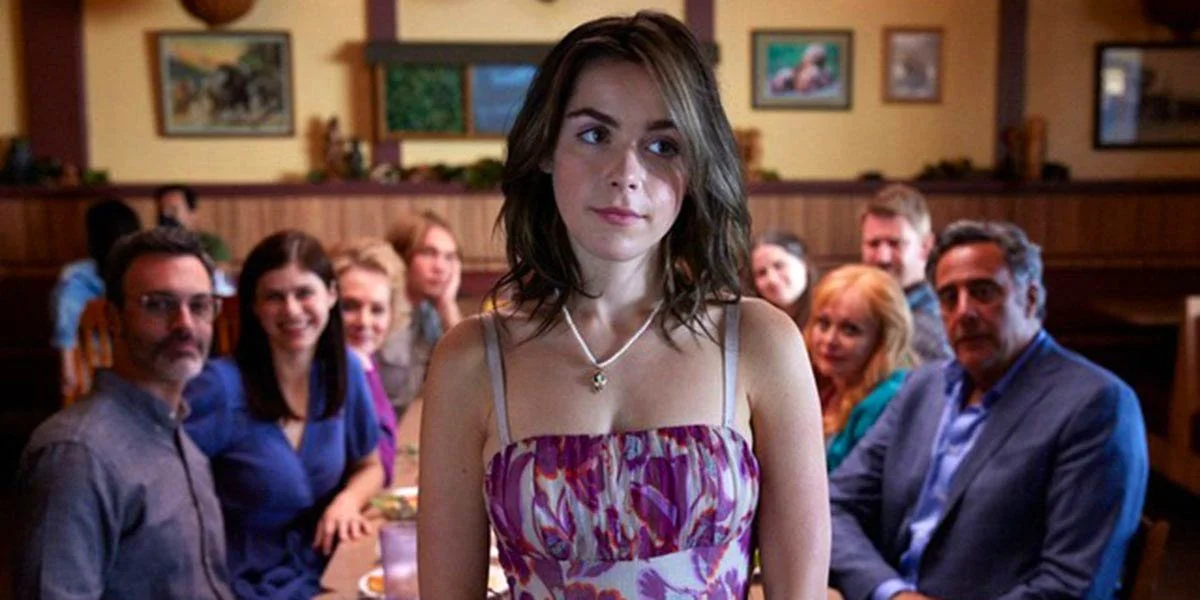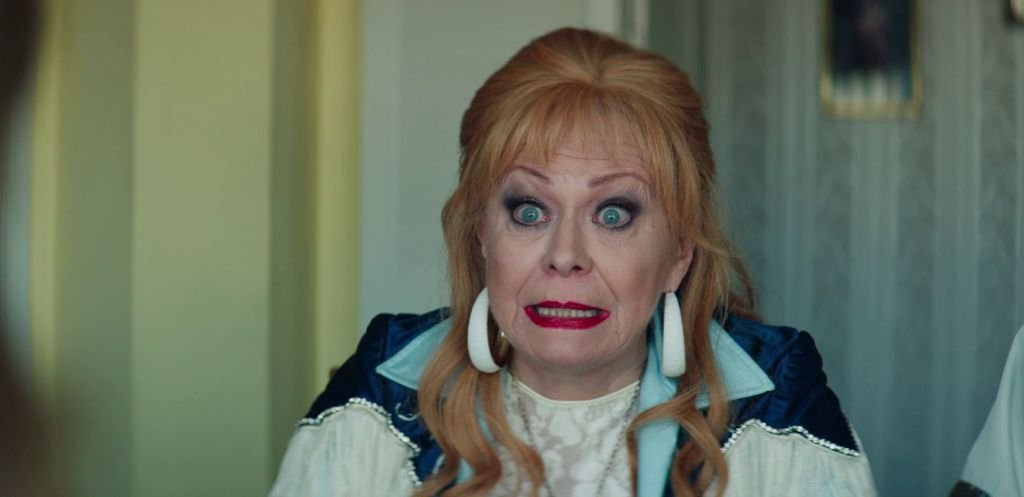Wildflower
Heartbreaking, heartwarming, funny and grim, Mark Smukler’s feature adaptation of his short film, Wildflower is a fascinating glimpse into corners of life film usually leaves untouched. Filled with unspoken warmth, spoken pain and a recognition of the difficulties of simple life, Wildflower upends the expected responsibilities of parents and kids with grace and rarely turning its characters into cartoons. When it diverges from its themes of family and parenthood Smukler and co-writer Jana Savage lose their way a bit, but none of that can cover up the heart that is frequently on offer.
Most of that heart belongs to Bea (Shipka), a teen with far too much responsibility on her hands trying to push off becoming an adult as long as she can. Not because she wants to but because she has to. With two neurodivergent parents at home, Bea is left performing the parental roles they can’t – working to pay rent, making sure everyone takes their medication, has a meal waiting for them, gets off to where they need to go on time. It’s a lot to put onto the shoulders of a teenager still trying to work out their own identity and desires for the future; cracks are begging to be formed. When she turns up in a coma at the hospital her friends and family gather to piece together what could have driven her to extremes.
It all sounds potentially twee and dire – a bad comedy sketch version of a Ken Loach film – but in Smukler’s hands Wildflower is both warm and bracing and far funnier than you might expect. Much of that is down its stellar supporting cast, literally jumping in from the get-go with grandparents Peg (Smart) and Loretta (Weaver) who tell us exactly who they are and why they’re hear with little more than a stare and snort. In a film about family you need a family and Smukler has given Bea a terrific one to bounce off of from her loving but handicapped parents (Mihok and Hyde) to her screechy grandparents and her overly yuppified aunt (Daddario), everyone is not only immediately real but immediately inviting. They dare you to look away from what they’re doing, even when it’s just a dinner conversation.
The downside to that is, when you surround your lead with eccentric characters with big personalities, they risk either being buried or dragged along behind unless they have some equal amount of charm. No one remembers anything about Zeppo except that he wasn’t one of the other Marx brothers. The straight man has an important job but it’s difficult to re-orient the heart of the narrative to them after bigger and better things have been unveiled. Hopefully that means the core is interesting enough to carry everything around on its own; more often it means the scene stealers get pushed to the edge and like a gravity well drag all interest along with them.
Wildflower does not have entirely that kind of trouble; Shipka is too strong with this kind of material to get lost in it. Even at her self-centered worst Bea remains relatable and mostly understandable, only occasionally falling victim to characterization by plot necessity. What problems it does have, along with much of its strength, are tied up in the flashback structure. As the family struggles to rationalize the Bea they think they know with the one in a coma full of drugs and alcohol Wildflower moves further and further back in time to create context for everything that comes after. After her parents meet almost by accident they quickly bring Bea into the world and decide it is time to move out of their family homes despite the fears and concerns of their own parents about how they will raise a child. Concerns that are not entirely unrealistic as Sharon has difficulty paying attention for long periods and is easily talked into buying alcohol for minors while Derek tries to have his 10-year-old daughter take on the family driving.
As deceptively manipulative as the opening vignettes could have been, they sing with life and reality. Sharon’s parents arguing about whether they are glad or not she is leaving home is as bracing and heart rending as anything on screen this year: Smart and Brad Garrett make every moment of their short screen time count. When young Bea almost kills herself in a car crash she begins living with her aunt (Daddario), a hilariously overdone helicopter mother who only exists as a counter point to Sharon but still manages to a sense of reality in her care for her sister and niece.
All that strength comes with a downside, however. As the flashbacks close in on the present day – now teenage Bea attending a private school and teenage life she tries desperately to keep separate from her family – the story morphs from the trials her family life and how it works despite itself to a more conventional coming-of-age story that cannot stand against what has come before. Derek and Sharon are unique, Peg and Loretta are unique, Joy and Ben are stereotypes but self-aware ones. Compared to them, Bea frequently comes across like a refugee from a 1990s Kevin Williamson film; it takes all Shipka’s strengths to find something real inside of her.
None of that invalidates what has come before, but it does weaken the whole. Some of that is the decision to hide what put her into the hospital as long as possible, which then requires a lot of plot manipulation and arbitrary character choices to get the decided point. Worse, the high school antics – none of which are unique or notably different than any random teen soap opera – push family to the side lines to give Bea the freedom to develop self-awareness. That leaves her trailing her already defined co-stars, and it’s a gap that’s never made up.
The warmth and humanity remain, however. And even if Wildflowers falters some in the landing the journey is still worth it.
7/10. Starring Kiernan Shipka, Dash Mihok, Charlie Plummer, Jean Smart, Alexandra Daddario, Kannon Omachi, Brad Garrett, Samantha Hyde and Jacki Weaver. Directed by Mar Smukler.

